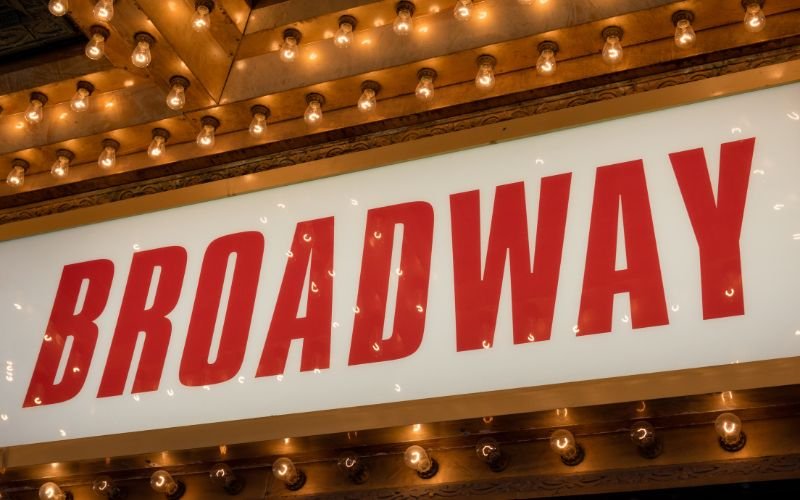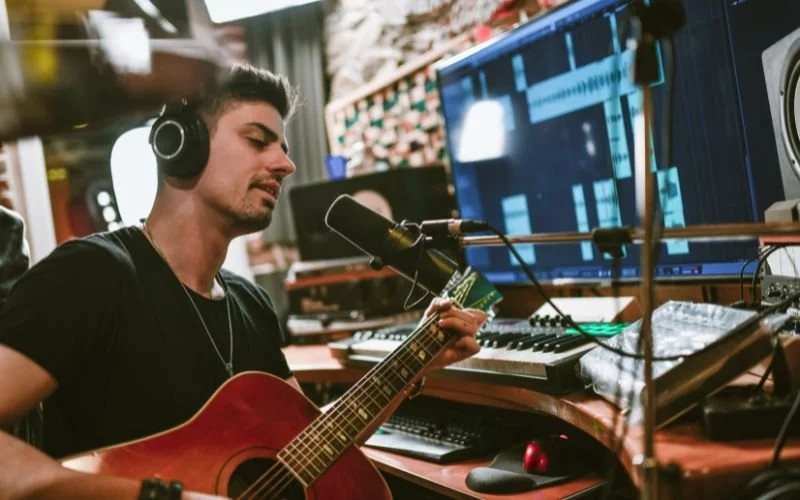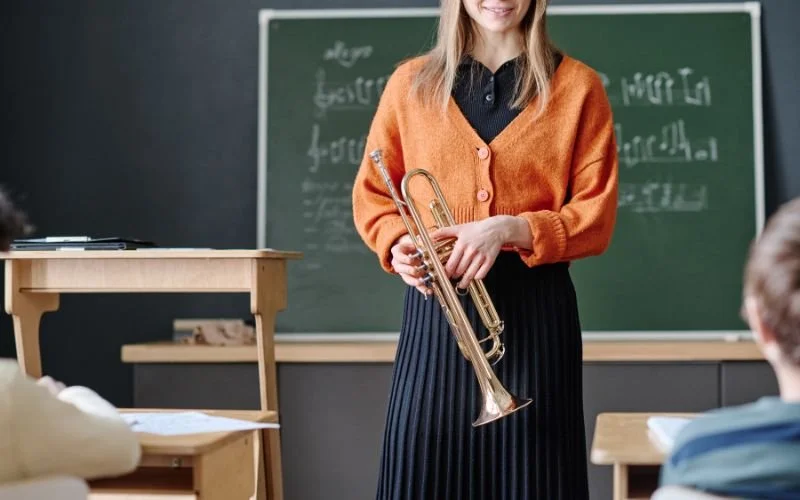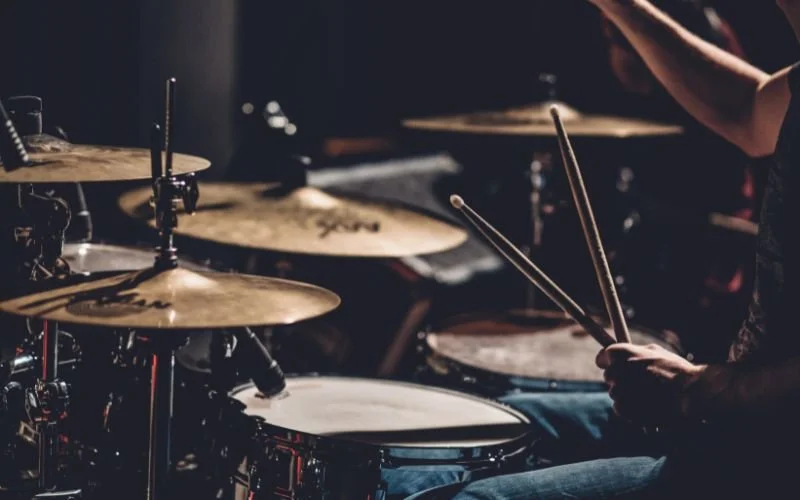Musicals: the incredible history of the genre, from its origins to Broadway
Halfway between theater, opera and concert, the musical comedy is a fully-fledged performing arts genre that has been enlivening theater stages since the early 20th century. Whether performed in Paris or on the legendary stages of Broadway, it combines music, dance and staging to tell stories with intensity and emotion.
Big fans of West Side Story, La La Land or The Lion King may not know it, but the musical theatre culture we know today wasn't built in a day. What is a musical? What is the history of the musical? Where does the craze for musicals come from? Newzik looks back at the incredible history of a musical genre that has thrilled stages the world over, from its origins to the great Broadway classics.
What is a musical?
A theatrical genre in a class of its own
A musical comedy is a hybrid of play and concert that first appeared around 1910, combining music, dialogue, song and dance. Contrary to popular belief, a musical is not necessarily designed to be comical. The principle behind this scenic musical genre? Music drives the plot and action of the play through the characters' singing and dancing.
The musical is a genre in its own right in the world of live entertainment, at the crossroads of several traditions: operetta, cabaret, vaudeville and music hall. More popular than opera and more immersive than traditional theater, the musical comedy seduces audiences with its spectacular dimension. Inherited from sung films, the musical has also established itself in the cinema as a genre in its own right.
Singing and composing: two disciplines at the heart of musical theatre
In a musical, singing and music play a vital role. Most of the dialogue is sung by the characters in the play. A musical explains the psychology of a character, notably through sung soliloquies (dialogues recounted aloud before an audience). The musical succeeds in conveying an emotion in a single song, where several scenes would be necessary in a classic theatrical narrative.
Demanding and technical, the composition of a musical requires versatile skills. It involves transposing a story into a musical work composed for one or more singers. Depending on the piece, a musical score can be adapted for an ensemble of musicians, a solo singer or a mixed choir.
🎼 Are you composing a musical? Use the Newzik application to adapt and transpose your score, lyrics and chords to an ensemble of musicians!
What are the vocal techniques used in musicals?
Playing a role in a musical isn't just about singing well. On top of that, you have to be able to embody a character and convey an emotion, all the while putting on a choreographic performance.
The musical comedy register is performed using a number of versatile vocal techniques. This vocal versatility enables singers and actors to link chest and head registers to obtain a powerful, flexible and homogeneous voice throughout the tessitura:
The "belt" (or belting) technique: very typical of the Broadway style, belting is a technique that consists of projecting the chest voice into the high notes, with power and intensity, without switching to head voice. head voice.
Speech level singing: a technique that aims to sing as you speak, in a natural, fluid and continuous vocal posture. By avoiding putting too much power into their voices, singers can more easily master vocal transitions from complete to spoken dialogue.
phrased": used in musicals such as Les Misérables and Hamilton, "phrased" is a mixture of speaking and singing. When a singer practices "parlé-chanté", he or she can take the liberty of speaking between two sung lyrics . This technique is particularly suited to sung dialogues or monologues.
In a musical, a story is told through song. Emotion, acting and the character's posture are conveyed through the voice. Practice your musical comedy singing technique! Scroll through the lyrics and record your voice as you sing, thanks to the Simply Sing application.
A look back at the origins of the musical: from opera buffa to Broadway
Singing in the Rain, West Side Story, Grease, The Lion King: what's the story **of these musicals that have been selling out theaters around the world for over a century?
18th - 19th centuries: from opéra bouffe to vaudeville
Before the glitter and neon, musical comedy took root in Europe, through the diversification of opera genres.
As early as the 18th century, the Frenchopéra-comique made its appearance with an innovative style: alternating spoken dialogue and sung parts in a satirical theatrical piece. In the 19th century, the genre flourished withViennese operetta (by Strauss or Suppé) and, above all, the satirical works of Jacques Offenbach, one of the leading figures ofopéra bouffe. This comic genre, also known as "opera buffa", has its origins in the Italian opera initiated in 18th-century Naples, which appeared at the same time as the Comedia dell'Arte. The Barber of Seville (an opera by Gioachino Rossini and Pierre-Augustin Caron de Beaumarchais, acclaimed by Beethoven) is considered the masterpiece of Italian opera buffa. The work would later inspire Mozart's celebrated opera The Marriage of Figaro.
In France, Jacques Offenbach democratized musical entertainment in Paris with the creation of the Bouffes-Parisiens theater in 1855. At the same time, vaudeville - a comic play punctuated by popular songs - conquered urban audiences. The tone was light and the refrains easily memorized. The modern musical gradually took shape...
Renaissance, Baroque, Classical, discover the history of music through the agesfrom its origins to modern times.
19th century: the advent of music hall and American minstrels
In the 19th century, on the other side of the Atlantic, popular entertainment took a different turn. Audiences flocked to minstrel shows - satirical entertainments - featuring song, dance and comic numbers. American vaudeville gradually made its mark. Less theatrical but just as musical, American-style vaudeville is characterized by a succession of varied acts, sometimes burlesque, sometimes sung.
Music hall was born in this spirit: accessible entertainment for the general public, with rhythm and visuals. The success of future musicals was already evident: a steadyrythm , interaction between performance and narration, and a desire to appeal to the widest possible audience.
In 19th-century Paris, music-hall developed through mythical stages such as the Théâtre des Folies Bergères, which hosted Josephine Baker's greatest hits.
1920 - 1960: Broadway's golden age
It was in the heart of New York, on 42nd Street, that things really took off. In 1895, Oscar Hammerstein (the first major producer of musicals) opened the Olympia, a monumental theater located at the intersection of the subway lines. Broadway quickly became the theater district, attracting crowds and talent.
The 1920s saw the birth of the first great American musicals, combining dramatic narration with original scores. George Gershwin's Porgy and Bess fused classical music, jazz and opera singing. Then came Rodgers & Hammerstein, the legendary duo behind Oklahoma (1943) and The Sound of Music (1959). These two composers established the codes of the modern musical comedy genre: songs that serve the plot and choreographed staging, all in an expressive register served by the emotion of the actors.
The 1950s and 60s marked the golden age of Broadway, with the arrival of musicals that would become cult hits. West Side Story, inspired by the tragedy of Romeo and Juliet, marked a turning point in the history of American musicals. Its theme and mythical dance scenes in the heart of New York made the play particularly popular. The humorous musical Chantons sous la pluie(Singing In The Rain) pays tribute to the advent of talking pictures with a humorous tone .
In the wake of all these theatrical successes, the film industry seized on the musical comedy genre and increased its audience worldwide tenfold.
21st century: musicals still a big hit
In recent years, the musical comedy genre has continued to thrill stages the world over. These musicals are a staple of the performing arts, attracting audiences of all ages.
From Paris to London to New York, several musicals are on the bill at major theaters:
The Lion King is still programmed at the Théâtre Mogador,
Mamma Mia! recently made its comeback with a tribute to ABBA's repertoire,
Notre-Dame de Paris, 25 years after its creation, continues its anniversary tour of France,
The adaptation of Victor Hugo's masterpiece Les Misérables will open at the Théâtre du Châtelet in late 2025.
5 internationally successful musicals
A number of great musicals have left their mark on theater and cinema throughout the ages. Here are 5 examples:
1.West Side Story (1957)
First performed on Broadway in 1957, this modern retelling of Romeo and Juliet in gangland New York combines explosive choreography, social tensions and unforgettable music by Leonard Bernstein. The musical was adapted for the big screen in 1961 and again in 2021, and remains an absolute reference in the genre.
🎬 Excerpt - "America" (film 2021)
2.Grease (1971 / film 1978)
Launched on stage in 1971 before becoming a worldwide phenomenon with the 1978 cult film, Grease embodies 1950s America. Rock'n'roll compositions and choreography driven by stories of high-school students.
🎬 Excerpt - "You're the One That I Want"
3.The Lion King (1997)
A stage adaptation of the 1994 Disney film, The Lion King opened on Broadway in 1997 to worldwide acclaim. Its spectacular costumes, spellbinding songs by Elton John and Hans Zimmer, and poetic staging conquered not only Broadway, but also London, Paris and Tokyo!
🎭 Excerpt - "Circle of Life" (Broadway)
4.Les Misérables (1980 in Paris, 1985 in London)
Adapted from Victor Hugo's famous 1862 novel, this musical was written in Paris in 1980, then re-adapted in English in London in 1985. To this day, it remains one of the world's best-performed shows. A musical filled with the human and social character of the literary work.
🎭 Trailer - Les Misérables at the Théâtre du Châtelet
5.Hamilton (2015)
Created in 2015 by Lin-Manuel Miranda, this musical tells the story of American founding father Alexander Hamilton. The musical mixes rap, R&B and jazz! A true stylistic revolution, Hamilton has renewed the genre and seduced a new generation around the world.
Are you a fan of musicals? Play your favorite tunes wherever you are, whenever you want, thanks to the Newzik sheet music player. Sing, play, record, transpose and annotate your scores without limits. Download the free trial now. Let's play!









